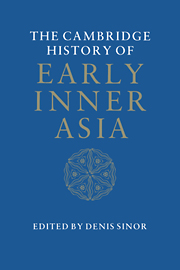The aim of this paper is to try to define the concept of the Barbarian and, at the same time, to show some aspects of the role that peoples entering into this category played in the course of history. We shall use the term “barbarian” in a very loose sense and will forego altogether the study of the history of the word itself. We know that it denoted successively the non-Hellene, the non-Roman, the non-Byzantine, the non-Christian, and, finally, even the non-Italian. In spite of numerous secondary applications and even misapplications of the word, it is quite clear, and has been asserted more than once, that in its primary and principal meaning the term is the antonym of “civilized” and is, therefore, for all practical purposes synonymous with “uncivilized”; it has a distinctly pejorative flavor.
The fact that in its earliest, Greek, application “barbarian” simply meant “foreigner,” together with some other considerations, would suggest that this pejorative flavor is due to chauvinism: Country A tends to regard Country B as barbarous and vice versa. Superficial proofs could easily be found to warrant such a theory: the Romans were barbarians for the Greeks; China and Europe regarded each other as barbarians. However, to accept such proofs would lead us very much astray. A closer examination of, for example, Chinese-European relations would soon reveal if not a mutual esteem at least the recognition that each civilization is what the Germans call a “Hochkultur,” a word which, for want of a better expression, we could translate “major civilization.” For the Chinese, India was never a country of barbarians, nor was Persia, oddly enough, for the Romans or the Byzantines.
